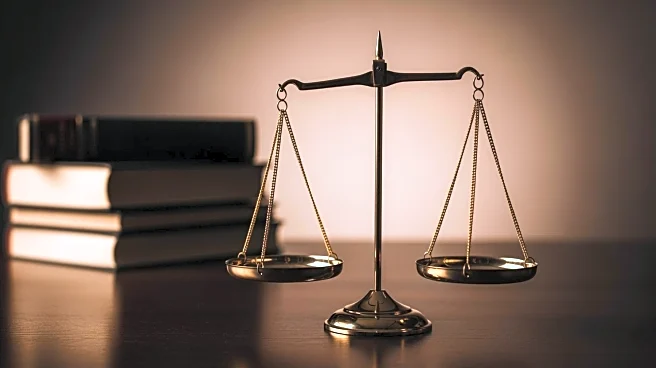What's Happening?
Recent reports have highlighted Iran's alleged involvement in terrorist activities targeting Australia's Jewish community. According to the Australian Security Intelligence Organisation (ASIO), Iran's regime utilized a network of spies and organized criminals to execute attacks, including the firebombings of Melbourne's Adass Israel Synagogue and a kosher cafe in Sydney. These incidents have led to a significant diplomatic rift, with Australia expelling Iran's ambassador and recalling its envoy from Tehran. The revelations have prompted warnings from Israel about the broader threat posed by Iran's leadership to Australians, not just the Jewish community. This development has intensified discussions around Australia's foreign policy, particularly its stance on Middle Eastern affairs.
Why It's Important?
The alleged actions by Iran represent a severe breach of international norms and have significant implications for Australia's national security and diplomatic relations. The expulsion of diplomats marks a rare and serious step, indicating the gravity of the situation. This incident could influence Australia's foreign policy, potentially leading to a reevaluation of its diplomatic and economic ties with Iran. Additionally, the situation underscores the ongoing global concerns about Iran's activities and their impact on international stability. The broader implications for Australia's Jewish community and the potential for increased security measures are also significant, as they highlight the challenges of maintaining social cohesion in the face of external threats.
What's Next?
In response to these developments, Australia may seek to strengthen its alliances with other nations concerned about Iran's activities, such as Israel and the United States. There could be increased pressure on the Australian government to enhance its counter-terrorism measures and intelligence capabilities. Additionally, the situation may lead to further diplomatic actions, including potential sanctions or international cooperation to address the threat posed by Iran. The Australian government will likely continue to monitor the situation closely and may engage in discussions with allies to formulate a coordinated response.
Beyond the Headlines
The incident raises questions about the effectiveness of international diplomatic protocols in addressing state-sponsored terrorism. It also highlights the ethical and legal challenges of responding to such threats while maintaining international relations. The situation may prompt a broader discussion on the role of intelligence agencies in preventing and responding to foreign threats, as well as the balance between national security and civil liberties.











